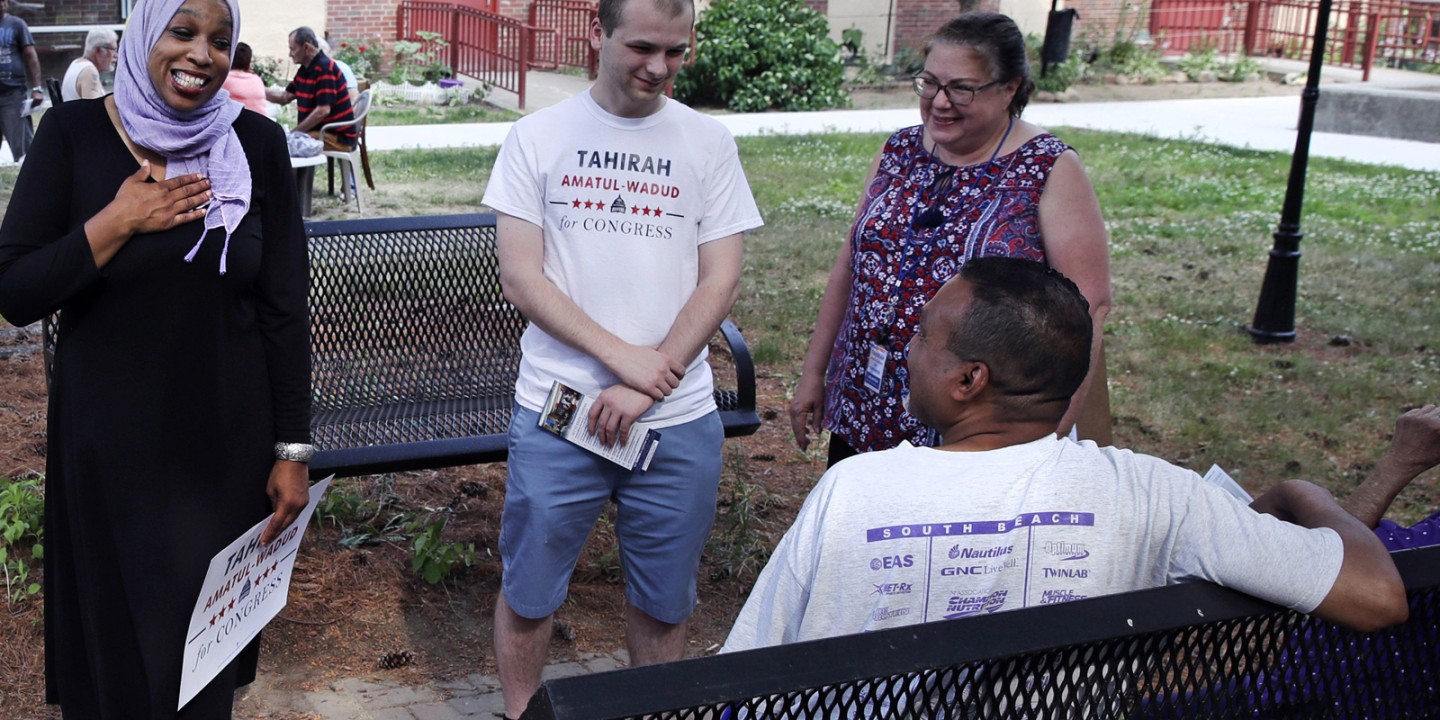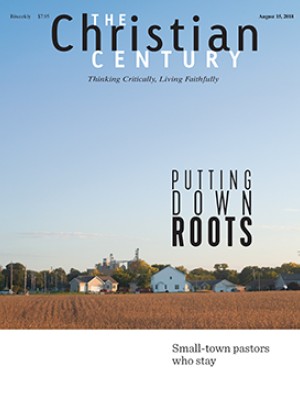U.S. Muslim candidates running in record numbers
There have been nearly 90 contenders in national, state, or local races—including several who could be the first Muslim woman in Congress.

When Tahirah Amatul-Wadud heard about Alexandria Ocasio-Cortez’s upset over Rep. Joe Crowley in New York’s Democratic primary, the first-time candidate saw parallels with her own long-shot campaign for Congress in western Massachusetts.
The 44-year-old Muslim civil rights lawyer is the lone challenger taking on Rep. Richard Neal, a 30-year congressman and ranking Democrat on the House Ways and Means Committee, in the state’s Democratic primary September 4. Encouragement, volunteers, and donations have been pouring in.
“We could barely stay on top of the residual love,” Amatul-Wadud said. “It sent a message to all of our volunteers, voters, and supporters that winning is very possible.”
Muslim Americans are running for elected offices in numbers not seen since before September 11, 2001, according to Muslim groups and political observers.
Still, the path to victory can be tougher for a Muslim American. Some promising campaigns already have fizzled out while many more face strong anti-Muslim backlash.
In Michigan, Democratic candidate for governor Abdul El-Sayed continues to face unfounded claims from a GOP rival that he has ties to the controversial Muslim Brotherhood, even though Republican and Democratic politicians alike have denounced the accusations.
Read our latest issue or browse back issues.
In Rochester, Minnesota, mayoral candidate Regina Mustafa has notified authorities of at least two instances where anti-Muslim threats were posted on her social media accounts.
In Arizona, U.S. Senate candidate Deedra Abboud received a torrent of Islamophobic attacks on social media in July of last year. Two right-wing militant groups, the Fraternal Order of Alt-Knights and the Proud Boys, have staged armed protests at her campaign events. “We have to face this rhetoric,” Abboud said. “We can’t ignore it or pretend like it’s a fringe element anymore. We have to let the ugly face show so that we can decide if that is us.”
As many as 90 Muslim Americans were running for national or statewide offices this election cycle. Recent primaries have whittled the field down to around 50, but only about a dozen ran in 2016, said Shaun Kennedy, cofounder of Jetpac, a Massachusetts nonprofit that helps train Muslim American candidates.
Nine candidates for Congress are still in the running, according to Jetpac’s tally. At least 18 others are campaigning for state legislature, and ten more seek offices such as governor, mayor, or city council member. Even more are running for lower-level offices such as seats on planning boards and school committees.
In Michigan, at least seven Muslim Americans were on the ballot in the August primary.
In Minnesota, the decision by Keith Ellison, the nation’s first Muslim congressman, to run for state attorney general has set off a race for his congressional seat that includes two Muslim candidates, both Democrats: Ilhan Omar, the country’s first Somali American state lawmaker, and Jamal Abdulahi, a Somali American activist.
But historic wins in those and other races are far from assured, cautioned Geoffrey Skelley, a political analyst at the University of Virginia’s Center for Politics.
Omar’s chances of emerging from a field of five Democratic candidates in Minnesota’s primary were bolstered by a recent endorsement from the state Democratic Party, but in Michigan El-Sayed is an underdog in his gubernatorial race, Skelley said.
Other Muslim American candidates might fare better in Michigan, which has one of the nation’s largest Arab American populations, Skelley added.
There, former state representative Rashida Tlaib has raised more money than her Democratic rivals in the race to succeed Rep. John Conyers, who resigned last year after accounts of sexual misconduct came to light.
Former Obama administration official Fayrouz Saad is also running as a Democrat in the race to succeed Republican Rep. David Trott, who isn’t seeking reelection.
If either of the Michigan candidates or Amatul-Wadud in Massachusetts were to win, she would become the first Muslim woman elected to the U.S. Congress, which has had two Muslim members: Ellison and Rep. André Carson, an Indiana Democrat seeking reelection.
Saad, 35, who served most recently as director of Detroit’s Office of Immigrant Affairs, broke from the conservative Republican politics of her Lebanese immigrant parents following the September 11 attacks when she saw Arabs and Muslims being unfairly targeted.
“I felt the way to push back against that was to be at the table,” said Saad, adding that her parents’ political leanings have also since moved to the left. “We have to step up and be voices for our communities and not wait for others to speak on behalf of us.”
In San Diego, 37-year-old congressional candidate Omar Qudrat is one of at least three Muslim Republicans running nationwide this year. He declined to comment on how Islamophobia has impacted his campaign. Instead, the political newcomer provided a statement highlighting his main campaign issues as he faces Democratic Rep. Scott Peters in November: addressing San Diego’s high number of homeless military veterans, improving public education, and expanding economic opportunities for city residents.
“Running for public office is about advancing the interests of your constituents and the American people,” Qudrat said in the statement. “Nothing else.” —Associated Press
A version of this article, which was edited August 8, appears in the print edition under the title “Muslim candidates run in record numbers.”





